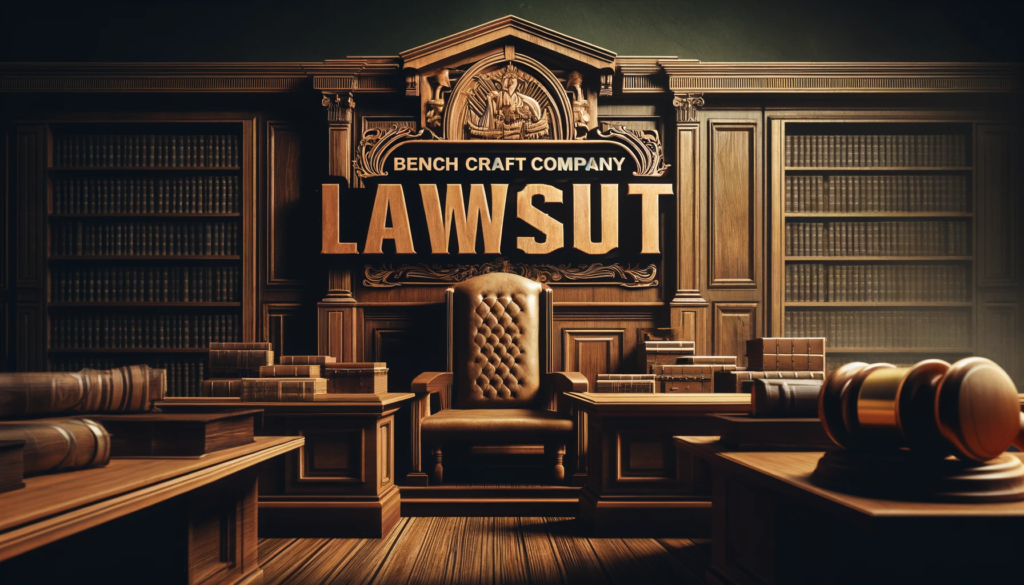
The present Bench Craft Company lawsuit litigation has garnered the attention of the legal and business community. And a few other problems with corporate operations and legal issues. Bench Craft Company’s Lawsuit’s intricate legal battle cautions businesses negotiating in the murky waters of competitive business practices and exposé the complexity of modern commercial conflicts.
History of Bench Craft Company
Bench Craft Company was established in 1982 and has focused on developing unique marketing strategies for golf courses nationwide. Their marketing product range, including benches, tee signs, and scorecards, has enabled them to collaborate with thousands of golf courses and establish a unique niche in the advertising industry.
The Crux of the Conflict
A prominent marketing agency filed a lawsuit against Bench Craft Company’s Lawsuit, citing serious allegations of business defamation, trade secret theft, and contract violation. The lawsuit was sparked by accusations that Bench Craft Company’s Lawsuit
had engaged in unfair business practices that damaged the plaintiff’s operations and reputation.
Legal Proceedings Unfold
The filing of the complaint set off a series of events involving both sides in an extensive legal battle. In a prompt response, Bench Craft Company claimed that the marketing firm had violated confidentiality agreements and participated in unfair competition.
When the parties submitted their cases at the initial court session, they set the foundation for a contentious dispute. Following the mediation’s failure to produce a resolution. A drawn-out discovery procedure and several pretrial motions intended to reorganize the battlefield occurred.
Different Arguments
The plaintiff claims Bench Craft Company’s activities have severely harmed its finances and reputation, requesting damages and an injunction. However, Bench Craft Company rests its defense on maintaining its competitive edge and ensuring that its business practices adhere to the law.
Important Judgements and Milestones
During the submission phase, important rulings regarding the admissibility of evidence were made. The main results are among the most important developments in the entire trial. These instances have influenced both parties’ strategies and provided insight into how the case might develop.
Implications and Impact
The Bench Craft Company and the marketing company are not the only parties involved in this action. It raises significant issues with trade secret protection, competitive business tactics, and contractual liability limitations. This is an excellent resource for similar businesses, emphasizing the need for clear agreements and moral competition.
The Greater Legal and Commercial Importance
This case offers a rich canvas for legal analysis, with experts commenting on the merits and demerits of each party’s claims. It highlights the importance of being aware of legal precedents, industry standards, and the possible repercussions of business conflicts. Both legal professionals and business owners keenly observe this case to draw conclusions that may impact future legal and business strategies.
Gazing Forward
As the court hearings end, the main topic of speculation is the possible consequences of the process. The outcome will undoubtedly impact the legal and business landscapes, regardless of whether Bench Craft Company, the plaintiff, or both gain from the verdict or an unexpected settlement is reached. The narrative and its consequences will likely be extended through an appeal.
Therefore, the Bench Craft Company lawsuit superbly illustrates the intricate dance that must occur between corporate operations and legal culpability.
As both sides prepare for the next phase of the case. Interested parties are reminded of the careful balancing act necessary to navigate the legally and ethically competitive business environment. The resolution of this legal dispute will determine the parties’ future and establish guidelines that can have a long-term impact on business and legal procedures.
